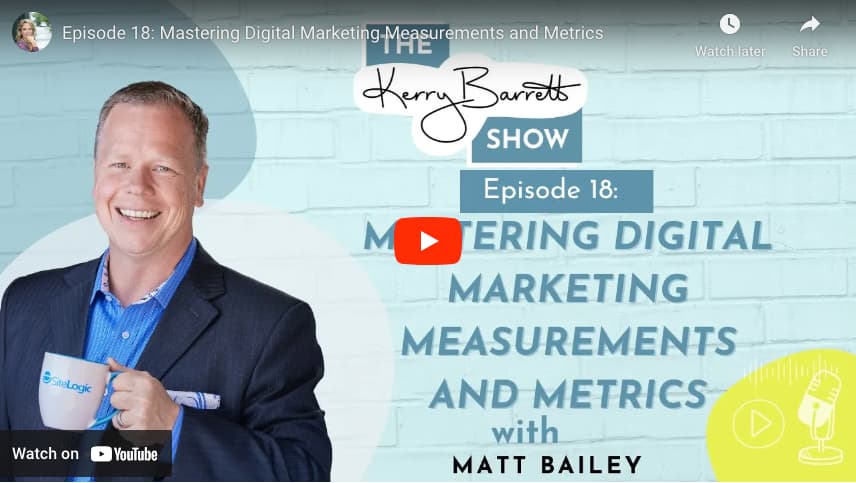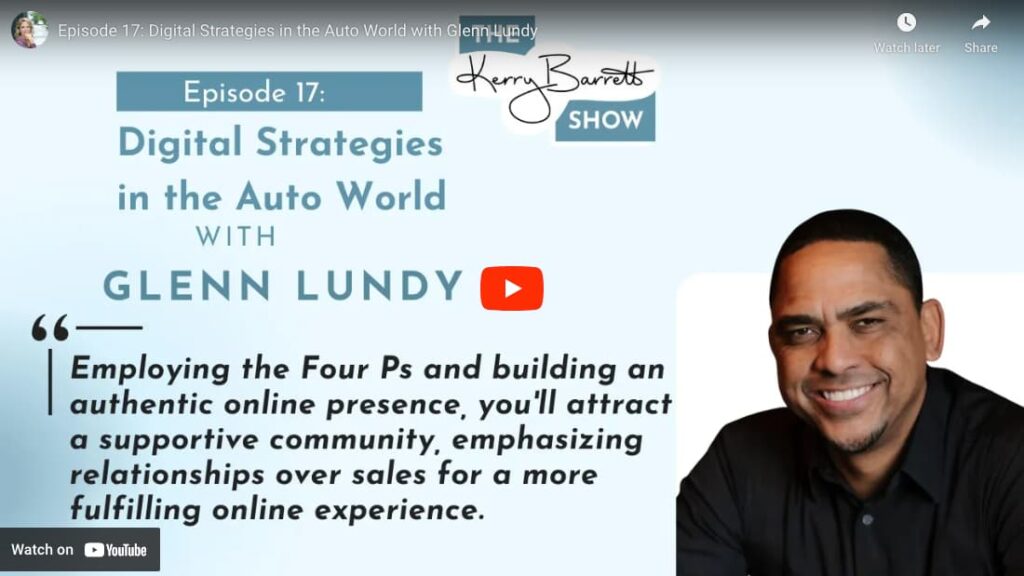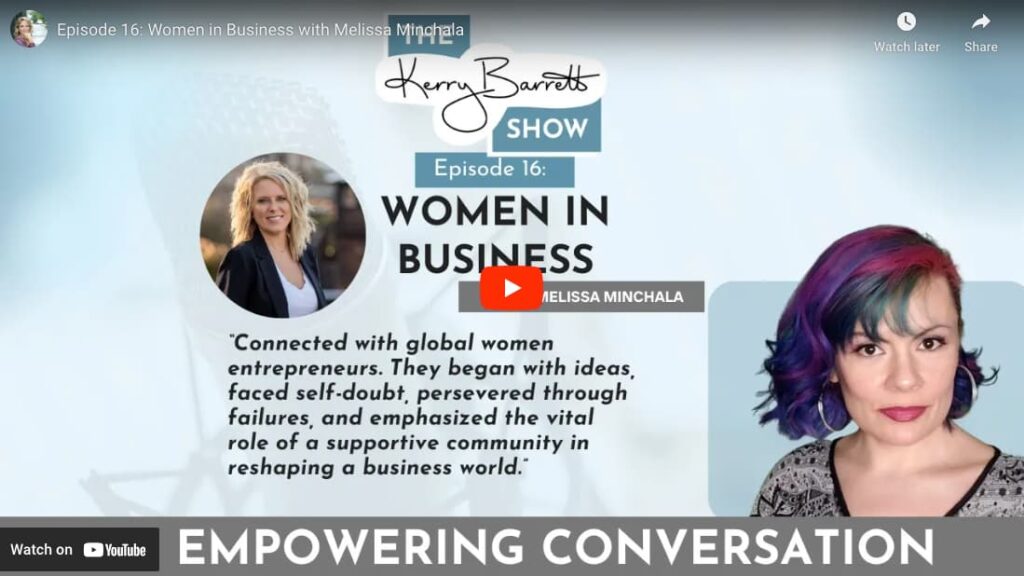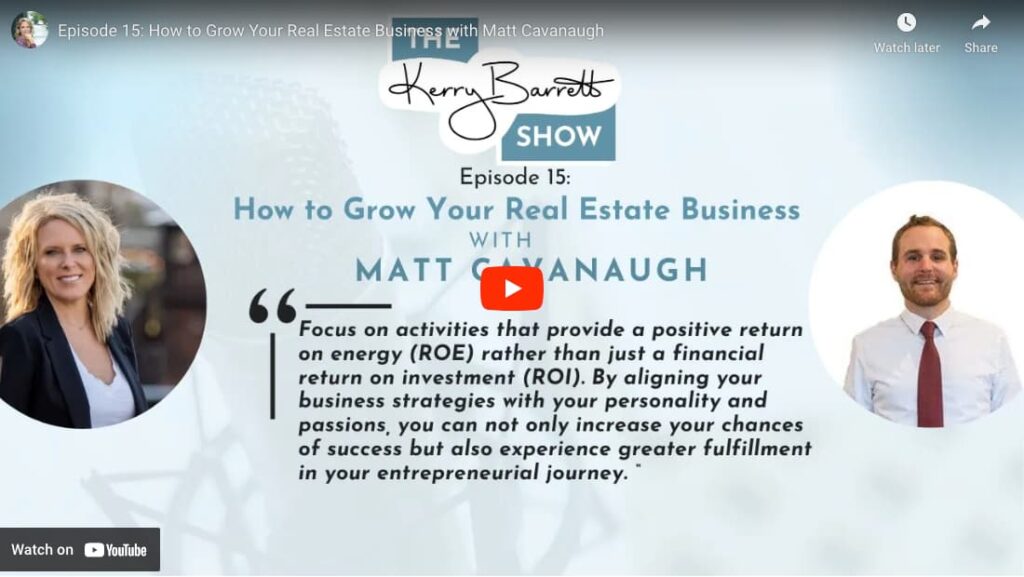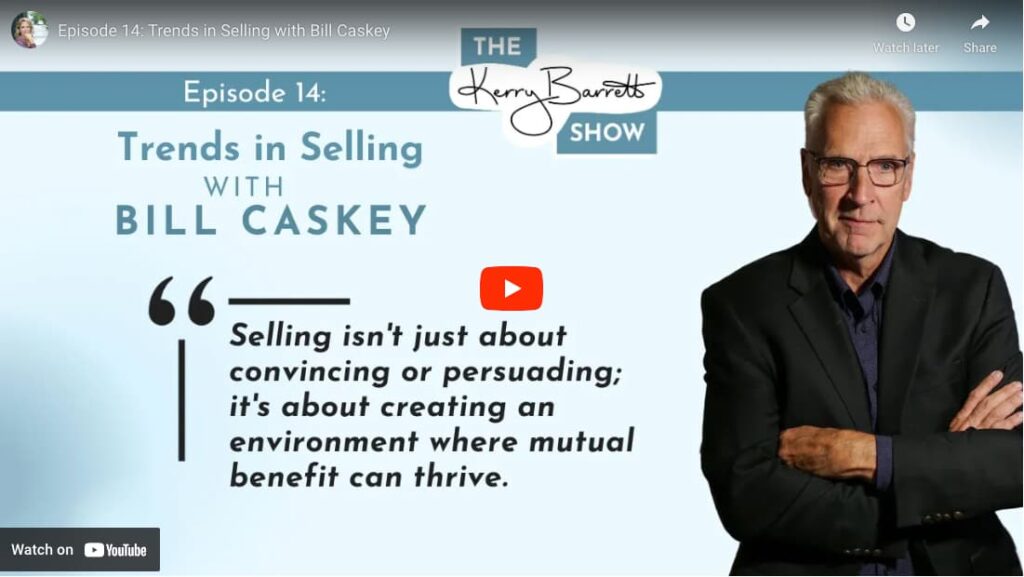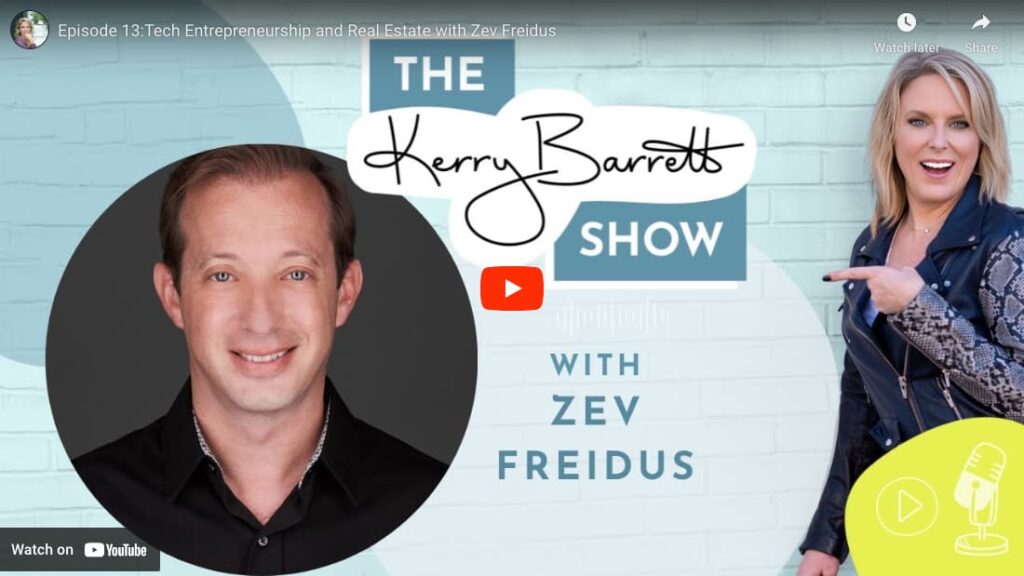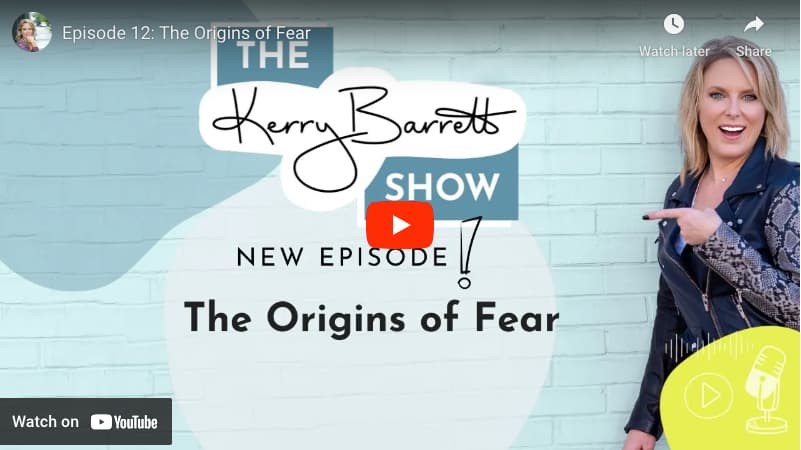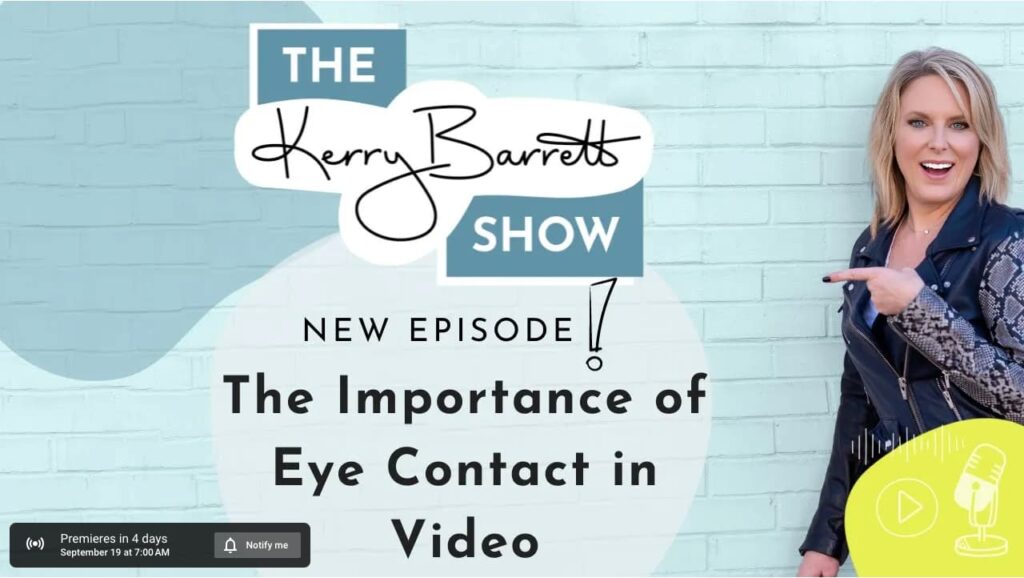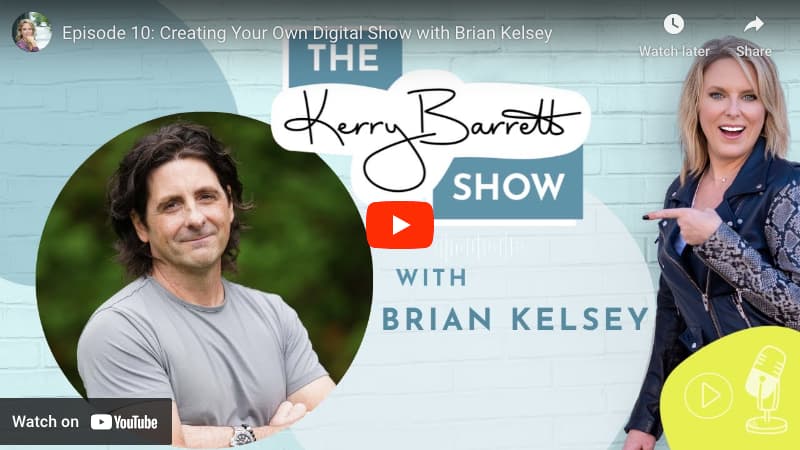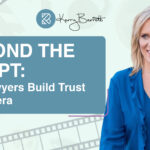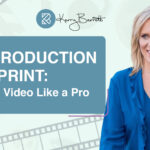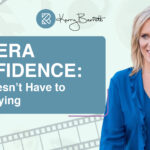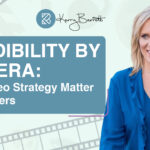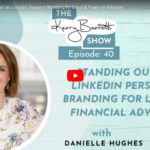Episode 19: Finding Balance in the Hustle with Rachael Amarante
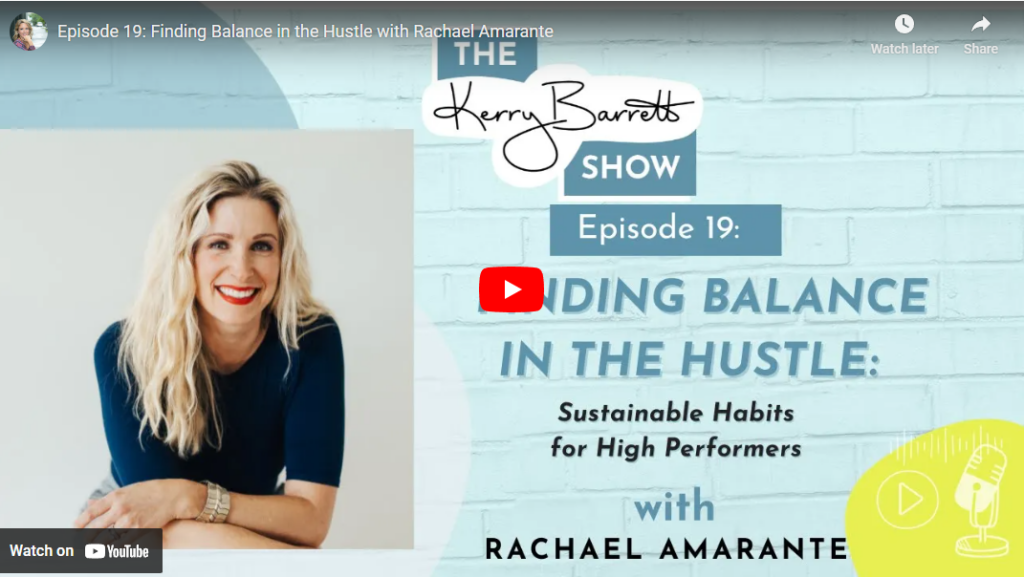
Rachael is a former burnt-out corporate and small business executive turned professional speaker, best-selling author, leadership coach, and founder of the movement, Take Care of Yourself™. Rachael lives in St. Paul, Minnesota with her husband and four young boys. When she’s not speaking and coaching her teams, you can find her experimenting in the kitchen and playing baseball in the backyard.
Rachael learned years ago that we cannot bubble bath our way to our goals – long before self-care culture took the mainstage. Instead, through her own trial and error and 15-years’ experience training high achievers, she figured out how we must take care of ourselves to achieve sustainable success in every area of our lives. We know the world is unhealthy and underachieving because people are unclear about how to do work and life and WIN at the balance. Now more than ever the areas of our lives are intertwined. When we take care of our health, our business wins. When we take care of our minds, our families win. Let’s take care of you, your business, your family, together.
In this episode of The Kerry Barrett Show, host Kerry Barrett welcomes guest Rachel Amarante, a wellness coach and keynote speaker. They discuss the importance of taking care of oneself and how it can be challenging in today’s all-or-nothing mindset. Rachel shares her expertise in training high performers on self-care and offers insights on sustainable wellness practices. Tune in to this engaging conversation about prioritizing self-care and finding balance in life.
Transcript
Kerry: Welcome to The Kerry Show. I’m your host, obviously, Kerry. Thank you for being here. Whether you are listening or watching, we appreciate it. I’m excited to introduce you to our guest today. This is Rachel Amarante. She’s a, did I say that right?
Rachael: Yeah.
Kerry: Should literally just asked you right before the show started, and then I had a brain fart.
Rachael: That’s all fine. I think it’s fine. Let’s keep going.
Kerry: Rachael’s a keynote speaker. She is a wellness coach. Rachel, it’s great to have you with us.
Rachael: Thank you. I’m so excited to be here. I’m actually shocked we actually pressed record.
Kerry: Are you?
Rachael: Since we just went chatting away. Right?
Kerry: Mostly about how much our kids swear.
Rachael: Right. Yes, we were. Yep.
Kerry: And let’s be honest, the conversation started with how much we swear too.
Rachael: Right. Right. And we just translated everything we do down to our children, which is actually, you know, good. Cause that’s what we do. So…
Kerry: I mean, at least they’re learning something from us.
So, take a quick second if you don’t mind, and, give the audience a few more details about yourself.
Rachael: Yes, I’m Rachel. Well, I have four young boys at home. I’m a Midwest mom, keynote speaker, and wellness coach. I train high performers on how to take care of themselves because I think from my own experience and in our world, we’ve lost sight of what it means to work really hard for something that we want. And what it means to actually be able to perhaps have some balance in our work and our lives and win in those places.
So I really go in and I do not do self-care. I do not believe that we can bubblebath our way to our goals. I believe that taking care of yourself is work, but it is work that is worth it. And it is work that you can do as a mother, a father, a business owner, a CEO, a janitor, a teacher, I don’t care.
So I try to teach tiny habits to people that can be really sustainable. And it’s been really fun and a crazy journey. So, yeah.
Kerry: That’s awesome. And I wanted, I do want to jump into what self-care is, what it’s not, and some of the action steps that you teach. But before we get to that, I would love to know sort of how you got to, where you are now. Sort of what that transition was, because I know as for any entrepreneur or business owner, there are ups and downs very often they are professional and personal combined.
So, like, sort of walk us through how you got from where you are to where you are now, which is a big question I realize.
Rachael: Yeah, I mean, yeah, I’m happy to tell that story. And it’s actually, I love hearing that story from other people too because I think when I started speaking and really started this work, I remember saying to myself, I will never stand on top of a mountain and look down on everyone else and pretend I have it all together.
I will never do that again. And I think that’s what sort of that mentality kind of got me to be able to be successful in what I’m doing now is I’ve completely released the idea of a mountaintop. And that it looks perfect up there.
Kerry: If you look close, I think at any of us, this is sort of my expression, like if you look close, it’s all held together with chewing gum and silly string.
Rachael: Yeah. And you can either laugh about it or cry about it. And yeah, as long as you’ve been an entrepreneur or you know, even working in corporate, like there are going to be crazy ups and crazy downs. And so taking care of yourself is the way to balance that and sort of stay grounded.
So my story, I built a business with an incredible interior designer friend of mine. It was massively successful. We cranked, we did all the things. We, within a year and a half, we went from a half-million dollar deficit to 2 million net sales. And it was amazing. And it was an amazing time of my life. And throughout that, I remember as I was sort of getting that feeling of like, whoa, this is a lot.
Whoa, I’m starting to force all my kids to wear matching designer clothing because I want it to look perfect. Whoa, I’m getting asked whether it was a media outlet or friends or women that, young women that worked for us, how do you do it all? And I got really good at answering that question like we’re all taught to answer it.
And I said, it’s, fine. I don’t know. I just figured it out. Everything’s fine. It just works itself out. But I really wanted to scream, this is not real. There is a massive shit show that was happening behind me, in my household that I didn’t want anyone else to see.
My kids are great. My marriage was fine, whatever. But my children were starting to implement that perfection, implement that anxiety. That straight, steep, ladder-climbing belief that there is one road and one only to success. And I loved the work that we did. But I knew in my gut that if I wanted to be the person that I needed to be in this world, and most importantly at the time for my kids, I needed to leave.
It was the hardest thing I ever had to do because it gave me so much fulfillment in my career. It gave me, I have four boys, like there’s five men in my house. Like I needed women. It was an office full of women doing really awesome things. Like that sounds like on paper, that sounds amazing and perfect.
And it was for a long time. And it checked a lot of those boxes, but I kept getting this pull of this is not right anymore. That coupled with the devastating loss of a friend the loss of a relationship and a diagnosis of my husband. And I remember it was right after the holidays. So let’s just, you know, play that a little bit…
Kerry: How long ago is this?
Rachael: This was four years ago. Right after the holidays. And you know, like when moms all like meltdown, right? So I was like, oh, this is just my mom after a Christmas meltdown. It’s totally fine. I don’t know.
But I remember laying on my bathroom floor, unable to move. I had torn a tendon in my leg. I had shooting pains in my teeth, my IBS, my migraines.
So all of this mental stress was taking, like had finally said, okay, you’re not going to do anything about that. Well, I’m going to show you lady. And I physically was lost.
Kerry: Manifested in all these physical ways.
Rachael: Yes. And that’s what happens to us. And it’s really, we wait until the physical happens for us to do something about it.
And now I teach not to do that. But back then, I remember standing and looking in my mirror and saying, there has to be a better way to do this. Because there is no way in hell, I’m going to teach my boys that this is what a woman looks like. This is what a mother looks like. This is what success looks like. I didn’t know where that was going to go, but I told myself I couldn’t do anything.
I couldn’t start a new business. I couldn’t join something new for three months.
Kerry: So you gave yourself like, I’m going to sort of detox if you will?
Rachael: Yep, I wintered. I call it like it was my wintertime. And I like coiled inward. And I remembered how to write something that I have loved since I was a little girl. I remembered how to be still. I remembered how to look outside.
I did the things that I had to do as a mother and a wife, right? So like ran my household, but I was grateful for that little bit of time to be for a minute. And from that came this extraordinary business where now I train people how to take care of themselves. I have 10 habits. That we go through and I do that when I keynote and speak to leadership teams. And I do that on a one-on-one basis so that women can learn to take care of themselves, even when they’re really busy, even when their plates are full and everything in life.
Kerry: Has this always been something that’s interested you or was it through the process of that sort of wintering, as you call it, where this emerged? Or did you, you know, was it after that you’re like, I don’t really still know what’s coming next, but this scene is like, how did that all transpire?
Rachael: I remember sitting like in mid-wintering, which also happened to be winter. So it made quite sense to me. But I remember thinking, am I ever going to get out of this, or maybe I’m just going to be here forever? But then things started to click and I started to be able to listen. One of my habits is learning how to listen to my instincts.
The tiny ones. And then when you learn to listen to the tiny instincts every day that grows. So you can listen without fear worry anxiety. And I’ve always loved writing I’ve always loved leading. I’ve always loved speaking. I was the first one to raise my hand in school. I am a communications major. It’s just what feels really natural to me and the wellness space has always been something that’s been really close to my heart.
We have a lot of food allergies in our family. I’ve worked out in my home for the last years and that’s how I’ve sustained that part of my health. The food sort of, you know, that part came, naturally because I already had to figure it out for, you know, all the humans in my household and I was sick of getting sick.
And so I figured it out and those are two large pieces in my habits too. What are you feeding yourself every day? Because that has to do with your mood and your focus and your energy. How are you moving your body every day? Every day? I don’t want you to go into a hot yoga class where you burn 600 calories on Saturdays. I don’t give a shit about that. I want to know what you’re doing on the rest of the days of the week, right? So those things really really matter and I started being the proof that you can do that and do all the other things. And then now there are hundreds of women that are seeing that proof that these habits really work. So…
Kerry: Are you comfortable diving into the 10 of them?
Rachael: Yes, let’s do it. Okay. Well, the first one is fill-up, which is your food. And so I walk through, depend, I mean, obviously depending on the conversation, if I’m a, you know, a 60-minute keynote speech is a lot different than a four week, a four week one on one, but your food matters.
And it doesn’t have to be perfect. Overarching what I truly believe is that the reason that people quit taking care of themselves is because it’s an all-or-nothing…
Kerry: It’s binary. It’s black or white. I mean, they’re all in or I had a candy bar. So screw it. I’m also going to have two dozen doughnuts or whatever.
Rachael: Yes. And that’s why it doesn’t work. It’s not sustainable. And then what we do, like, think about that, in your brain, what that does for your brain and your mood and what you start to tell yourself. And then what you start to say in the mirror and that affects your gut health and your hormones.
And then your young daughter or your young son is standing next to you in their mirror saying the same things that you are. I mean, I have shivers. I didn’t make this shit up. Like, this is just the way it works.
So when my kids see me choosing to have, I have like ground turkey, rosemary, and kale for breakfast almost every morning.
And they’re like, mom, that’s so weird. Like, why are you not having granola and yogurt like we are? And I’m like, it just doesn’t suit my body. It just doesn’t suit me. That’s all. Because I need to have fucking energy all day long to haul ass after you guys. And that just doesn’t do it!
Kerry: Yeah. 100%. Yes. By the way, that sounds delicious. Do you offer recipes?
Rachael: I do have recipes. Yes, I do. All of them. You can have them. I will send you them. Yes. And that’s important. And like, it doesn’t have to be, oh my God, if it’s not organic, I can’t eat it. And if it’s not from my garden, I can’t eat it. And like, those things are great. Do them if you can, but also if you can have a banana instead of a donut for breakfast, like you’re winning.
Kerry: Yep. 100%.
Rachael: Okay. Fill up. The next one is move, move your body. Like I said, I work out in my home, and that started probably out of necessity, out of survival. We had our first three boys born in two and a half years of all three of them.
And so that’s when I stayed home for a few years to like figure out… and that was amazing. And like, they are, I would never take back that time in a million trillion years. We are like literally the best adventure travel team ever. And I think it’s because we had to survive those years.
Right. But that’s when I started working out at home because I didn’t have time or money to go anywhere. And I remember that I enlisted my mother because I would strap into a stroller. A double stroller. And then I would make my mom run behind me in a single stroller. And that was the only way I could do it because I gotta strap them down. I can’t have them running in the house. Like they need to be tied down.
And so I think moving our body, like I said, not just once or twice a week. That’s great. Go to a yoga class. I freaking love going with my girlfriends who can go every day and I meet them once in a while.
But it’s what you’re doing every day. It’s the 2 minutes that you lift weights when you are watching your Netflix documentary, whatever. Like, I don’t care.
Kerry: Oh, that’s such a good idea. I know these things, but these are such good reminders.
Rachael: They are and they’re small. They’re small. So like last night my three big boys we were watching a Halloween show and I’m like, you know what?
I haven’t moved my body yet today and I’m really crabby. It’s 7:30. The last thing I want to do is work out right now, but I’m gonna feel really good. It’s exactly what I did I had two out of my three boys join me well, we watched our show mom-son time ever.
Kerry: I love it. What show did you watch?
Rachael: Those they’re watching this National Treasure. Which is now a series. Yep, and then we also are waiting for Wednesday to come back…
Kerry: 100%. Yeah, we’re in the Halloween kick right now too.
Coraline, um, yeah, Monster House, etc. Anyway, sorry. Diversion.
Rachael: Hotel Transylvania on repeat. The third habit is to listen. So that’s where we really start listening to our gut instinct and learning how to do that because I remember learning like, listen to your gut, you know, like, I don’t know, 10 years ago.
And I’m like, I don’t know how so someone needs to tell me how to do that because I don’t have time to learn all the steps and the history and why. So I really dig into that and allow people to learn as much as they want or just like, Rachel, just tell me what to do, please. And so that is learning to listen to our gut.
The next one is energized. We need to energize our freaking lives again. I think that for the last few years when we’ve all had really full plates, we’ve given each other a pass. And we’ve given ourselves a pass and that’s great to have empathy and I have a lot of empathy. However, what we’ve taken off of our plates are our goals.
We didn’t take off the fact we had to bring our kids to school or that we had to, you know, fill out our taxes or go to the grocery store. That stuff stayed. What is left is our goals, our big dreams. And they haven’t gotten back on the plate yet.
The only way that we can succeed in our lives is if we keep working for those goals while we are going to the grocery store, essentially.
That’s what brings us life and energy. I also have a rule, this is the next habit, is to live right now. And like, I don’t have a bucket list. Like, I don’t do things because I have four kids. I figured out a way to either go without them or bring them with me.
And it doesn’t have to be like huge trips or things like that. But if you want to write a book, why are you waiting until you’re 60? Right? If you want to become a yoga instructor, what are you waiting for? We’ve gotten better as a society, probably from COVID just because we’re, it’s sort of like, Oh my God, what if, this is it?
We’ve all started maybe taking those leaps a little bit more, but I try to teach people how to do them every day in their lives. So have that be your first instinct. Instead of, wait what if oh my god, what’s gonna happen? Your first instinct is to let go! Let’s see what happens. Let’s keep going. Let’s do the thing, right?
Work better. That’s the next one. We need as a society and as general human beings to work better. I want outside meetings. I want walking conversations. I want support for when you need to take a couple of extra days off because your grandmother died, but you know, and you have trust in yourself and in your people that the job is going to get done. And we can’t do that by ourselves.
So this is sort of where the community comes in. Cause the next habit is called sharing what’s good. I’m a firm believer, if you see something good happening in the world say something about it. Yeah. We are so good at talking about when people are stupid or when the world is shitty.
Kerry: Yeah. 100%. We have that, we have a great negativity bias. It is well-tuned.
Rachael: Yes. And so I’m like, like every time I see a woman, man, old, young running. And I’m like, you know, driving, ’cause I essentially live in my car. I don’t know about you…
Kerry: Yeah. 100%. It’s like, It’s sort of a glorified pack mule.
Rachael: It is. Yeah.
Uh-huh. And I have like a good podcast going. I like, you know, a lot of voice texts happening, whatever. Anyways. Anytime I see a runner, my first instinct and what I say to my kids, which is super important, what you are going to say out loud, make sure your kids hear you. If you’re doing this work, do it with them. Is good for them. Damn, look at them out there hauling ass, right? And why not roll down the window and yell good for you?
Kerry: Yeah, I love it.
Rachael: We need more of that.
Kerry: And I have no doubt that they smile and wave and you like, gave them a little extra boost to finish the recipe.
Rachael: Exactly. Because you never ever know what’s going on in someone else’s day and someone’s life. And if you can make it just a tiny bit better, why wouldn’t you?
Kerry: 100%. We’re more than happy to call other people. I love that. And that makes so much sense. And it sort of goes along. If I could piggyback for one quick step with that community, because it’s funny, I was watching the show last night that was set in like COVID times, quote unquote.
And they were talking about your pod. Remember having a pod, like a group of people. And we, but we did sort of sequester ourselves for a while. And we shut down a lot of that other. Stuff definitely in person. And now we’re sort of reemerging. You know, we’ve come out of the chrysalis or the cocoon and we’re this new person for better or worse, and it’s like reestablishing all of that stuff, but reestablishing it in a new, more sort of intentional and better way.
Rachael: Yeah, that’s what I was going to say. Like, I think that, you know, was what it was. And it was amazing and it was horrible and scary and… It’s life-changing, right? I like to look at every situation, good or bad as, okay, where is the opportunity in that situation?
And I think that there are a lot of companies, the companies that I work with, the ones that are even willing to say, yes, let’s take two days and go through how we can help our teams take care of themselves.
That step is huge. I also think that there are a good amount of media outlets that have done a good job of bringing back what’s good and, you know, having that reminder for us to see. We just have to decide which ones we’re gonna, which ones we’re gonna follow and which ones we’re not…
Kerry: Ones we’re gonna give our energy to.
Rachael: Yeah, exactly. Yep. Okay. The number eight habit is to give it your all. So this is, personal for me because this is who I am. I give everything 110%. It’s just who I am. And I know, and I’ve learned through a lot of failure and a lot of change in relationships that my all is different than someone else’s all. And that’s okay.
Like, guess what, Rachel? That’s okay. And that was something that I had to learn and then in turn be able to teach other people how to appreciate that in their lives. And if they’re the one that is, giving it their all and it still looks different than somebody else, that’s okay. But the point is that habits work in order for a reason. Because by the time you get to these last three, you know who you are, you know what you want, you know how to do it.
Now you have to actually go do the thing. And that is huge. I’m all about taking action. I will never walk into a room or a situation talk about a bunch of fluff and walk away. And because that’s where we all get lost. And then we go back to eating donuts for breakfast.
Kerry: We don’t know how to implement any of it. Yeah.
Rachael: Forgot how to do it. And I do it too. I’m like, oh my God, I learned that amazing thing, but I don’t know how to make it work in my life
Kerry: Well, I was gonna say it’s funny. I was having this conversation with my husband this morning because I used to work out all the time and I found that I have slowly but surely been sort of shuddering that. Like, oh, I have, you know, email, whatever, blah, blah, blah. Asked my husband this morning, I’m like, okay, this is not what I have set up is not working.
I know I need to do it. I hear that everywhere, but I can’t figure out how to implement it. Like, so we sat down and we like looking at the schedule and we carved out like, okay, mornings aren’t going to work for you because of this, this, and this.
Even though everybody says that’s what you should do. So what works for you, what works for you is between. 1 and 2:30. Now you just have to go block that time off. And that is that barring an emergency, that’s a nonnegotiable. And I just needed somebody to like to bounce that off of and figure out how to, implement this advice into my life. Anyway, that’s all I was going to say.
Rachael: Oh, okay. Two things that I love about what you just said, one, that you’re having that conversation with your partner. Because that is so huge. You might not always be on the same page. Your workouts are going to look different. Your schedules are going to look different, but I like to be able to have that person that is like, this is important to you and us because I want you around until you’re 99ish…
Kerry: Yep. He says the same thing. You got to take care of yourself, Kerry. You’re not doing it.
Rachael: The second thing that you said is that I want to encourage you and myself because I have to remind myself of this all the time too. And anyone else is forget about the should. Who the hell is they? Who are they?
Kerry: You know, the people. Them.
Rachael: I don’t care. I don’t care when you’re working out. Just do it. It’s to commit, make it a non-negotiable to yourself in a day to do it. And giving yourself an hour and a half, that’s a good long time. I give myself 40 minutes max.
Kerry: So that’s smart. So yeah, I probably should do that. Yeah.
Rachael: Cut it down. I work up for 30 minutes and then I pull myself together so I can get on my next call, go to pick up, go to soccer, go to the board meeting, whatever, right?
So give yourself that tiny buffer of 10 minutes or 30 minutes. That’s all you need. Just make it consistent. Number nine is deciding to go. So this is to remember we’re in those, that action taking time. And the hardest thing is the decision to do it. Deciding whatever it is, whether it’s your workout, whether it’s the food you choose to get out of your fridge, whether it’s to make a career move, whether it’s to talk to your boss about an idea that you have. The hardest part is deciding.
Kerry: When, when you talk about deciding, is motivation part of that, how do you feel about motivation? Because I have mixed feelings about it, but go ahead.
Rachael: I have mixed feelings about motivation too. Here’s what I’m motivated to do every day. I am motivated to be a better person the day than I was the day before. That’s what I’m motivated to do. So am I motivated to work out? No. Am I motivated to eat salads every day? No.
Am I motivated to, you know, put a mask on? Because it’ll make my skin happier and drink a million gallons of water? No! But I know that if I don’t take care of myself on Tuesday, on Thursday, I am not going to be a better person than I was on Tuesday.
Kerry: Yeah. So, so you’re not waiting for the motivation. You’re just deciding to do the thing. Yeah.
Rachael: Yeah, and I would love to piggyback off that because that’s what I was, going to go for next is that, when we decide to do something, all those little thoughts that happen after like, ooh, but I’m not ready. Oh, but I don’t have the workout clothes.
Oh, but I’m too old. I’m too tired. Oh, but I just broke my arm. I don’t care. Those are just excuses. You already decided. So that is again going back to using your gut instinct to help you take that and just go forward.
The last habit is called next up. And that really means let’s write it down. What are we doing? Because it’s my job to hold you as a team, as an individual, and as a company accountable for what you just decided to do. So what’s going to happen next? What’s the year? What’s the six months? What’s the 10 years? Like I want to know. And so it’s really taking people through that, through writing conversation and whatever the case might be. To get them to keep going.
Kerry: Right. And just sort of like maybe even it sounds a little bit like, almost maybe reverse engineering, like here’s where you want to be in 10 years or five and then a year and six months and maybe there’s even a three-month goal. And then you’re like, sort of, okay, here are the steps that you need to take to get to that spot.
Rachael: That’s right. And in every, step, there’s sort of these two pillars or like two columns, right? One is really focused on if I’m working with businesses and not individuals, but focused on the business, right? Here are the steps you’re going to take. The second column is those 10 habits because those 10 habits are going to lead to the success of the first column.
Kerry: I want to ask you a question. Those 10 tips were phenomenal. And I’m going to ask at the end of this and we’ll put it in the show notes where people should go to get more information. But I want to ask you before we wrap because we’re coming up on time. You mentioned at the beginning of this that you know, you can’t, I think you said bubble bath, your way to fixing your problems or doing your goals or whatever it is. You are a wellness coach, but you have you know, you’re not really a big fan of the self-care culture. Tell us about what is.
Rachael: All right. Yeah. I would love to. Yeah, I think self-care is kind of bullshit in the way that our society has been using it. We have been using self-care as companies as individuals and within our family units as a way to mask what’s really going on. We use it to bring us back to neutral.
So for me, my belief is that care is a basic need. You need a bubble bath once in a while. You need a pedicure. You need a happy hour with your friends. You need a vacation alone. You need to walk through Target without kids at your ankles. Basic needs, right? You need to get your hair done. You need to get your whatever basic need.
Kerry: Whatever your, sort of, this is what keeps me just functioning.
Rachael: Like think about your self-care and I want you to flip that instead of thinking of it as this is gonna solve my problems, get me to my goals, make me a better human being, whatever. Like self-care, this is my basic need for me to sustain my current life. Taking care of yourself is work. It’s the work we do every day on ourselves to reach our goals. Wellness, business, marital, whatever. So that could be going to get your blood drawn, going to the dermatologist…
Kerry: Getting rid of toxic people in your life.
Rachael: Yes. Oh my God. That’s huge. And really hard one. Yes. That is taking care of yourself.
Yeah. I mean, sitting down and having a conversation with your husband, I don’t know the last time I did that, right? It’s on my list.
You know, that is taking care of yourself. Not self-care sometimes, you know, that’s not fun sometimes. My rule is that self-care gets us back from drowning and taking care of ourselves helps us to fly. That’s the difference.
Kerry: Self-care is, I’m gonna bring me back to baseline, and then I’m gonna do some work to get to this next, to fly. I don’t know why I’m trying to put other words to it, you said it perfectly.
Rachael: Like we have to like, sort of like repeat it back to ourselves a million times in a different way that works for you. Just really quickly, I think that companies have really tried to implement self-care on Friday or, mental health day.
And like, those are great do it. But if you are then having your teams come back to an 80-hour work week, of poor culture and no purpose and lack of support, you’re not doing anything for them on those days.
Kerry: You’re just making the doggy paddle maybe a tad slower.
Rachael: Yeah. Yeah, exactly. Like, on Monday they’ll be fine, but by Thursday they will really need that self-care Friday again. And it’s like, why are we living in that cycle?
Kerry: We’re not taking the right steps in between those days. It’s like when you coach somebody and then if you don’t ask them to implement or execute the lessons, the skills or the knowledge begins to, fade, it fades quite quickly as a matter of fact.
Rachael: Yeah. And like think about that was what that does to our psyche when we have learned that or been told so many times that get a pedicure, it’ll be okay. Just go have a glass of wine with your girlfriend. It’ll all be okay. And we wonder, and it’s okay for a minute. And then we wonder why the next day it’s still not okay. Again, like, think about that, what that does to our mind.
Kerry: It’s not okay. My toes look great. I have a hangover, but the other problems are still there.
Rachael: My business is still not growing. I still haven’t written my book. Yeah. I don’t know why
Kerry: I could talk to you literally forever. This has been an amazing conversation you rock!
Rachael: I mean I feel the same. This is so fun.
Kerry: I mean, I knew you were going to be great cause you’re a speaker and we’ve spoken before and we’re very much simpatico when it comes to our mindsets and our goals and the way we sort of move in the world, there’s a lot of problems. But this is really, truly, it’s such a fantastic conversation and I learned so much, from just these couple of minutes.
So if there is somebody in the audience who’s like, my company could use this, or I could use this, where should they go to get more information about you working with you, et cetera,
Rachael: Yeah, so my website has almost everything. It has press kits and who I work with and things like that. And we can put that in the show notes. It’s rachel-amarante.com. If you want to work with me one-on-one, I do that a lot through social media or LinkedIn. So you can find me in either of those places.
We can put those social links and even just DM me and say hi. And you like heard, and like, we can just connect. I just, love that anyway. It doesn’t always have to lead to something. If it does, you need some help. I am here for you to do that.
Kerry: She’s awesome by the way. We met not all that long ago. And you’re like, let’s make up a list of like places we want to speak and we can trade with great ideas.
Rachael: Let’s do all the work together. Like where are we going to be in five years? Okay, let’s go.
Kerry: Yeah, I love it. So yeah, so listener, viewer, all of that information will be in the show notes, the links, et cetera. Rachel, it was amazing talking to you. We must have you back.
Rachael: Yes, it was so fun, I would love it. And I would like to know when you are working out. Let’s hold you accountable.
Kerry: I will. It’s not going to happen today. Cause I have to go, I have to go do a last minute shoot in the city with a client today.
Rachael: How about tomorrow?
Kerry: Tomorrow, I’m in.
Rachael: Tomorrow you’re in. I love it.
Kerry: I’ll shoot you a DM or a text and let you know that can happen. Along with a selfie.
Rachael: Yes, you will. I love it.
Kerry: Rachel, thank you so much. You’re awesome.
Rachael: Okay. Bye.
